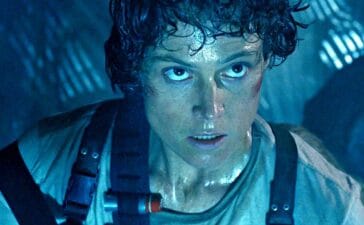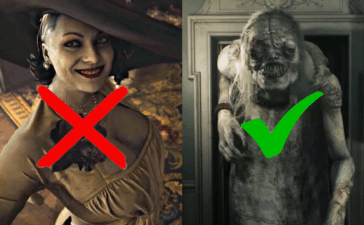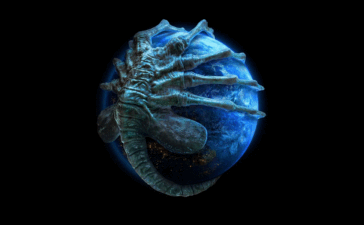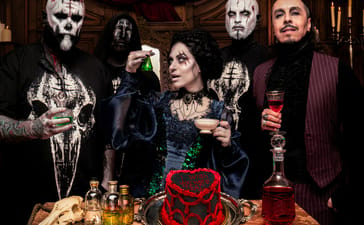Just the fictional ones, you understand – the real ones can go jump.
Alien: Earth is upon us and with it comes the reminder that the real monsters are human. As Ripley memorably told sleazy suit Burke, “You don’t see them fucking each other over for a percentage.” The trope of the evil corporation is an ubiquitous one and, really, that “evil” is a bit superfluous, isn’t it? You don’t get too many movies about heroic corporations. In fact, the last one was Amazon’s recent War Of The Worlds with a baffled-looking Ice Cube, and that’s currently sitting on 0% on Rotten Tomatoes.
An evil corporation, though? Just the best villain ever. Immortal, unkillable, implacable, with vast resources to throw against our heroes and absolutely no moral qualms about using them. Here are a few of my faves, mainly drawn from the ranks of science fiction. Let’s face it – if we included more realistic examples, or real ones, we’d be here til the singularity.
Weyland-Yutani
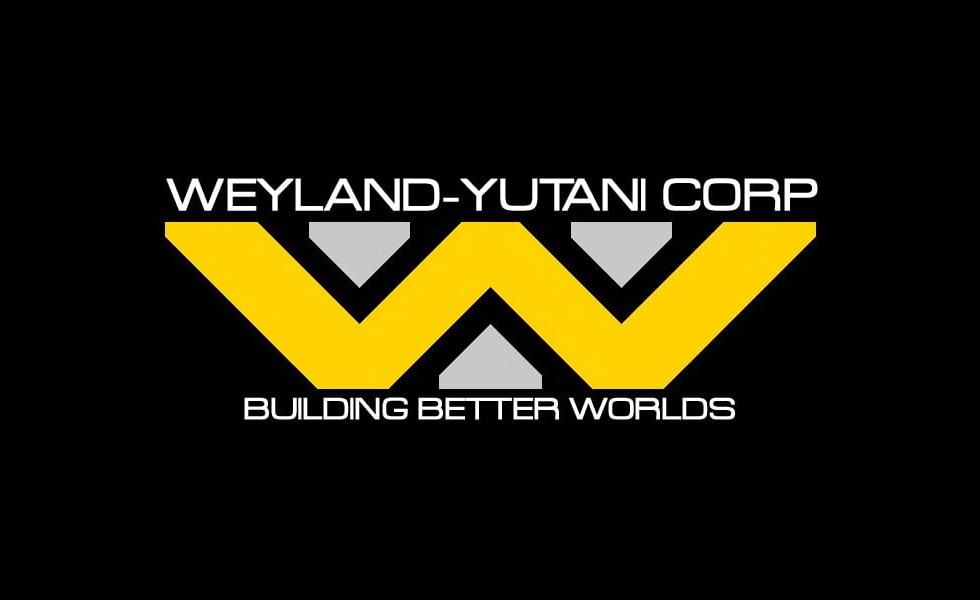
The Alien Franchise
Well, it’s hard to go past the star-spanning mercantile empire that’s been trying to snag a xenomorph since 1979, is it? Weyland-Yutani set the standard for all evil corporations in the realm of science fiction going forward. Tyrell might have engineered an entire slave race, and Cyberdyne Systems brought about the nuclear apocalypse (but they don’t actually make the list, being more stupid than malevolent in the grand scheme of things), but you can’t beat ol’ W-Y for sheer indifference to human suffering. Hell, they were barely a presence in the first film, despite being the actual villain! It was crew expendable then, and it’s crew expendable now.
The Shitsu Tonka Unitocracy
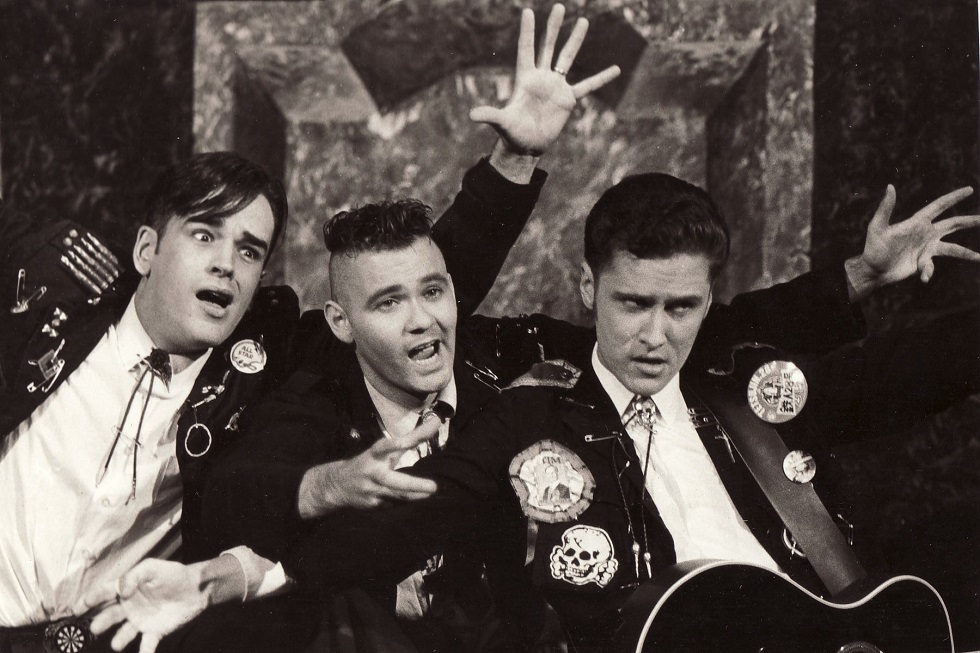
DAAS Kapital
Bit of a deep cut, this one, as insofar as I can tell, the only way to watch DAAS Kapital legally these days is by purchasing it on YouTube. But back in the early ’90s, this genuine oddity ran on the ABC for two seasons.
A kind of anarchic, cyberpunk-flavoured sitcom/sketch show/we’re not really sure, DAAS Kapital saw the mighty Doug Anthony All Stars – Tim Ferguson, Richard Fidler, and Paul McDermott – stuck in the submarine Titanic II, cataloging all the world’s art treasures for the Shitsu Tonka Unitocracy, the corporation that now controls the planet. Stuck with only each other for company, the boys slowly go insane – well, more insane.
It’s all very weird and cheerfully offensive. But the glimpses of the world under Shitsu Tonka we see through news broadcasts are blackly funny, yes, but genuinely dystopian. As we’ll revisit in the very next entry, stuff that was broad satire back in the day now seems horribly prescient.
Omni Consumer Products

The RoboCop Series
The evil corporation that runs the Detroit Police Department, along with seemingly everything else in the grim near future dystopia of RoboCop. As written by Michael Miner and Edward Neumeier, the monolithic conglomerate is a satirical take on ’80s “greed is good” capitalism, more than happy to reassign good cop Alex Murphy (Peter Weller) to a dangerous precinct so he can be resurrected as the titular zombie cop after he’s inevitably gunned down. Subsequent entries in the series can’t hold a torch to Paul Verhoeven‘s brilliant, bombastic original, and certainly doubled down on OCP’s avaricious villainy. Still, satire can age fast. Evil suit Dick Jones’ (Ronny Cox) boast that OCP made its money in “…in markets traditionally regarded as non-profit: hospitals, prisons, space exploration.” sure hits different today.
Conglom-O

Rocko’s Modern Life
Joe Murray’s superb tale of suburban anxiety may have escaped your notice, disappearing into the field of similarly wacky cartoons that dominated the animated landscape of the early to mid-90s. But if you happened to catch it, there’s a fair chance that the misadventures of the titular wallaby trying to navigate all that contemporary America could throw at him. The series colourful cast of funny animals inhabit a bleak capitalist hell called O-Town, a company town for the all-pervasive Conglom-O who seem to own almost everything and employ almost everyone in the series. Their attitude is best summed up by the company motto: We Own You.
Network 23
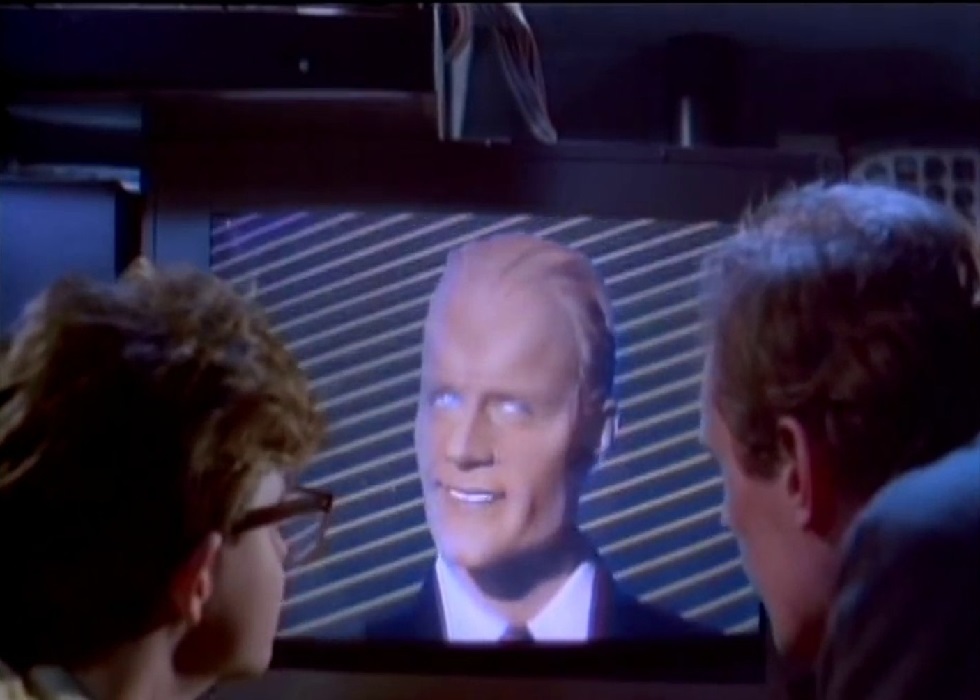
Max Headroom
20 minutes into the future, intrepid TV reporter Edison Carter (Matt Frewer) fights to bring the truth to his viewers with the help of Max Headroom (also Matt Frewer) a very imperfect computer simulation of his mind. In this none-more-cyberpunk stone cold cult classic, Carter works for Network 23, and frequently opposes them as well, uncovering bizarre sci-fi plots like compressed TV ads that make some viewers spontaneously combust, organ-leggers who prey on live victims, sponsored terrorism for ratings, and more. But each victory is a minor one – in a world where TV networks hold so much power that television off switches are illegal, there’s only so much one man can do against the power of the media.
Arasaka

Cyberpunk 2077
Johnny Silverhand’s bete noir has been making life hard for Edgerunners ever since the very first edition of the Cyberpunk TTRPG back in 1988. A ruthless Japanese zaibatsu of the type that populated so much speculative fiction of the ’80s, Renraku is implacable, ambitious, expansionist, but beholden (well, mostly beholden) to a bushido-like code of honour. There’s also a fair chance that the guards trying to kill you when you bust into their secure facilities will be dressed in samurai armour, because the genre is steeped in Japanophobia that stems from the economic anxieties of cyberpunk’s heyday. But if you’re going on have one monolithic low-key problematic Japanese megacorp to stand in for them all, Saburo and the boys are the only choice.
Zorg Industries
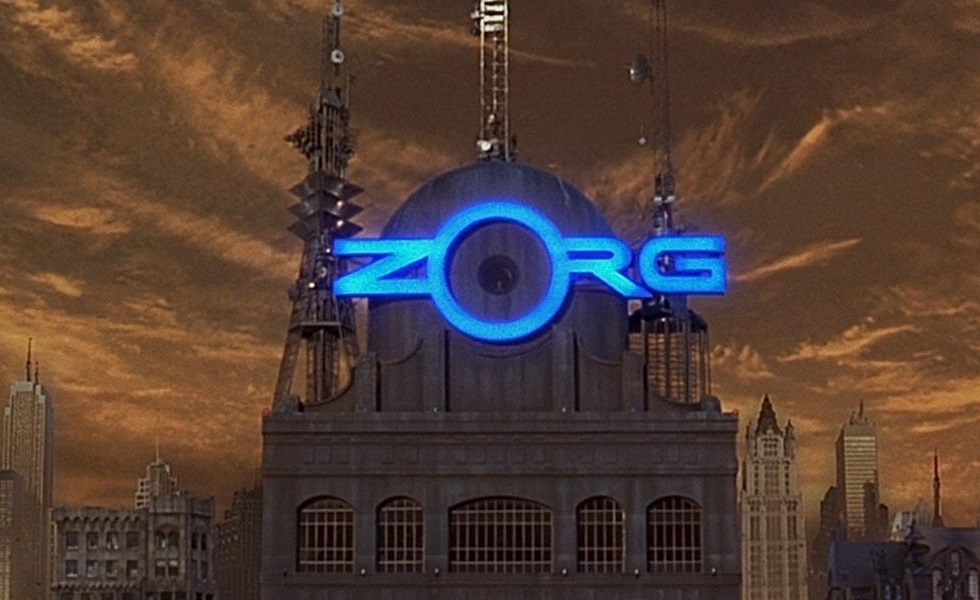
The Fifth Element
The major villain in Luc Besson’s delirious, candy-coloured sci-fi romp is a giant alien ball of evil in deep space heading for Earth with malicious intent. But the guy throwing obstacles in front of Bruce Willis’ commando cabbie and Milla Jovovich’s superhuman ingenue is Gary Oldman’s Jean-Baptiste Emanuel Zorg, the head of Zorg Industries. The Hitler-haired plutocrat is primarily an arms dealer and figures he can profit off the inevitable chaos and carnage soon to ensue, but he’s also got his fingers in countless pies, unknowingly firing Willis’ Corben Dallas along with 999,999 other employees. In the process he encourages Dallas to heed the call to adventure and thus seals his own doom. But that’s probably cold comfort to everyone who just found themselves on the breadline.
LexCorp / LuthorCorp
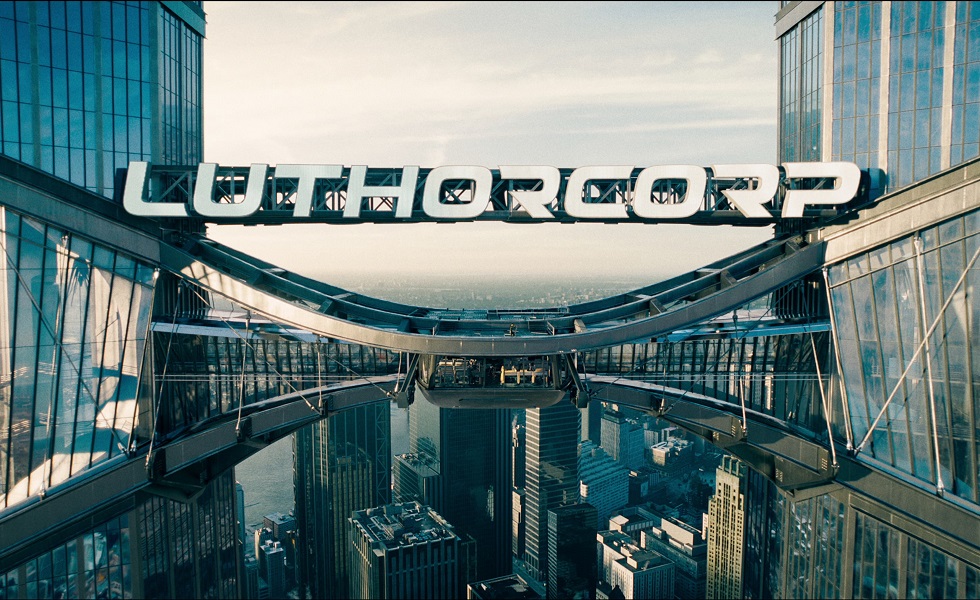
Superman
Sometimes Superman nemesis Lex Luthor is a mad scientist, sometimes he’s a ruthless businessman, and sometimes he’s both. When the brilliant and bald bad guy is rocking a double-breasted suit rather than a lab coat, he’s the head of LexCorp or LuthorCorp, depending on what you’re reading or watching – in the most recent movie, it’s the latter. A vast corporate empire to rival Bruce Wayne’s fortune, whatever it’s called Luthor’s megacorp funds his megalomania and dreams of defeating the Man of Steel, and he’s used its bottomless resources to commit pretty much every crime up to and including mass murder.
Umbrella Corporation

The Resident Evil Franchise
Milla Jovovich crops up once again, having battled her way through what feels like about 30 Resident Evil movies, most directed by her husband, Paul WS Anderson. Originating in Capcom’s iconic survival horror video game series, Umbrella have a keen interest in zombies, and a marked disinterest in how much horror said zombies can wreak when they inevitably get loose. Of course, there’s a pseudoscientific explanation for said zombies, but they’re still bloody zombies, and the machinations of the Umbrella Corporation not only lead to the destruction of corporate HQ Raccoon City, but the end of the world as we know it.
Alien: Earth is streaming on Disney+ now.




